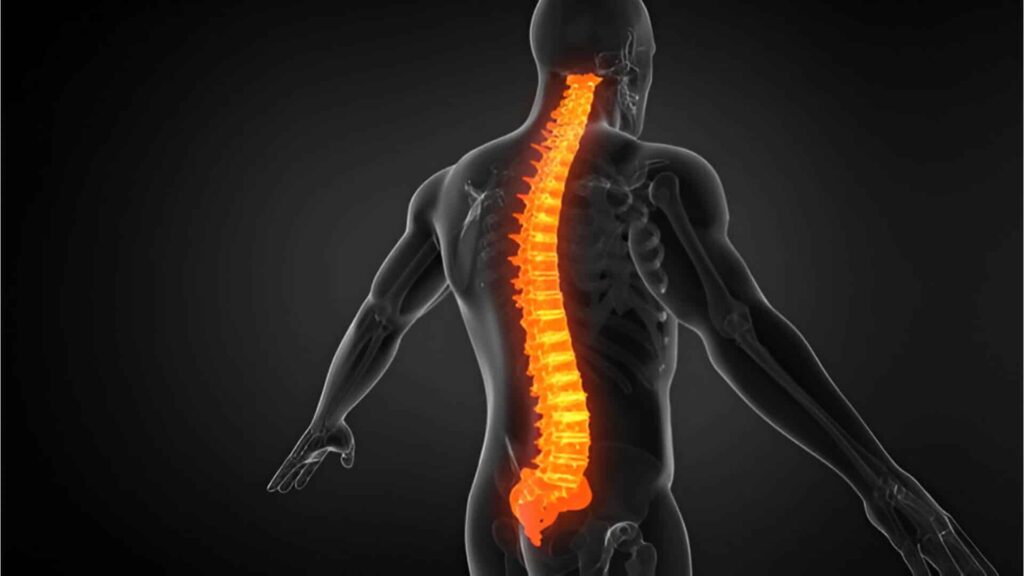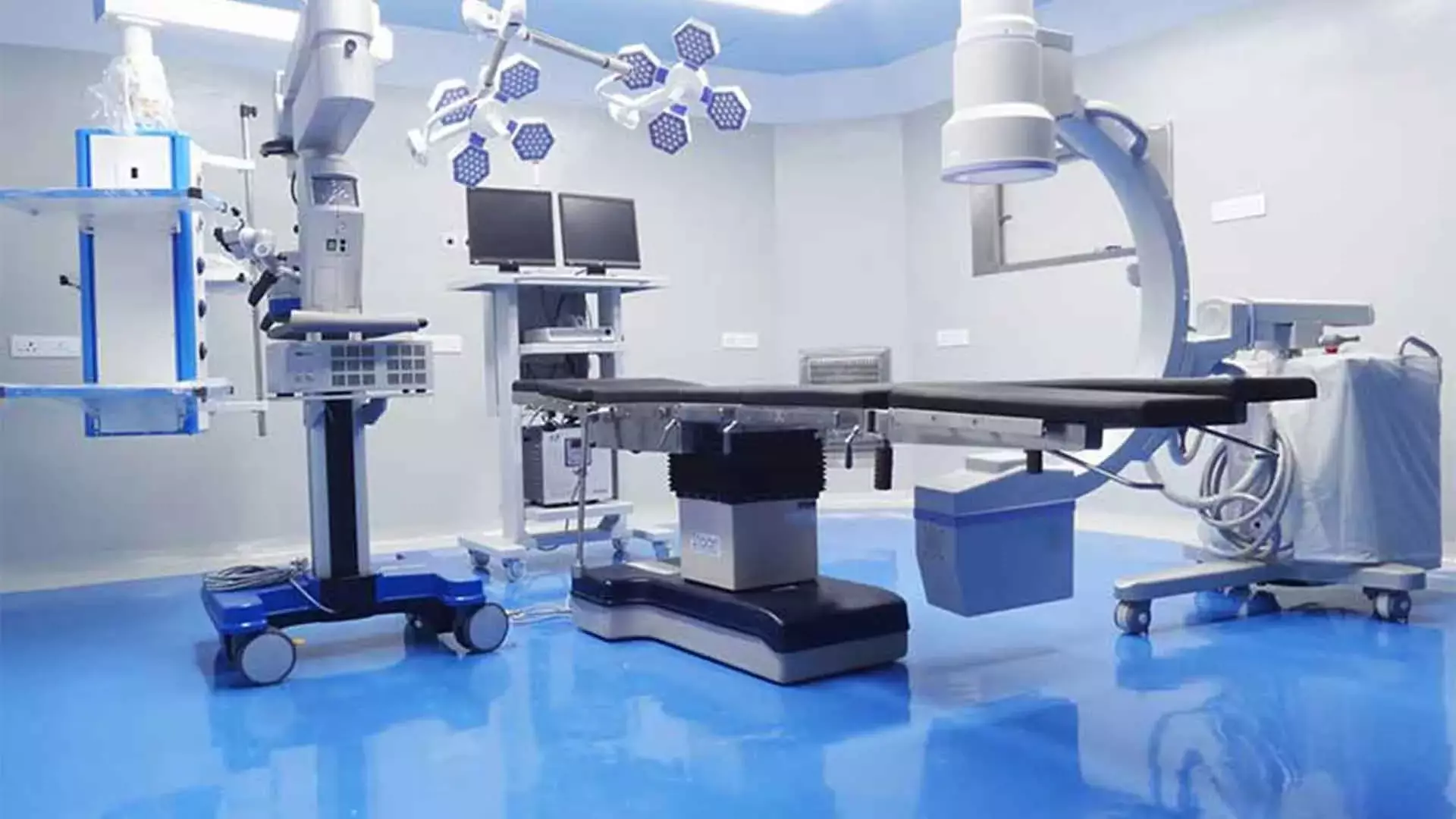Spine Surgery: Precision Care for Back and Neck Pain Relief
- Expert surgical solutions for spine-related conditions like disc herniation, stenosis, and fractures.
- Minimally invasive techniques for faster recovery and reduced post-op pain.
- Specialized procedures including microdiscectomy, spinal fusion, and artificial disc replacement.
- Image-guided navigation and cutting-edge technology for safer, more precise outcomes.
- Comprehensive care-from diagnosis to post-op rehabilitation-for long-term spinal health.
Spine Surgery: Advanced Surgical Solutions for Back and Neck Disorders
“Surgical precision to restore your spine and your life.”
At Vanchilingam Advanced Neurology and Stroke Care, we specialize in evidence-based spine surgeries for patients suffering from severe spinal conditions where conservative treatments are no longer effective. From minimally invasive procedures to complex spinal reconstructions, our goal is to relieve pain, stabilize the spine, and restore mobility with the safest surgical methods available.
When Is Spine Surgery Needed?
Spine surgery is typically advised when:
- Non-surgical treatments such as medications, therapy, or injections have failed
- Imaging confirms structural damage compressing nerves or causing instability
- There is progressive neurological decline, numbness, or loss of function
- Pain severely affects quality of life and daily activities

Conditions We Treat Surgically
- Herniated or ruptured discs
- Spinal stenosis (narrowing of the spinal canal)
- Degenerative disc disease
- Spinal fractures and trauma
- Scoliosis and spinal deformities
- Sciatica and nerve root compression
- Spinal cord compression
- Failed back surgery syndrome
Types of Spine Surgeries We Offer
Microdiscectomy
Minimally invasive removal of herniated disc fragments to relieve nerve pressure.
Laminectomy / Decompression Surgery
Removes bone or ligament to decompress spinal cord or nerve roots.
Spinal Fusion Surgery
Fuses two or more vertebrae using rods, screws, and bone grafts to stabilize the spine.
An alternative to fusion that replaces damaged discs with artificial implants to preserve motion.
Learn more on our Total Disc Replacement page
Vertebroplasty & Kyphoplasty
Injection of bone cement into fractured vertebrae for spinal stabilization (used in osteoporosis-related fractures).
Spinal Tumor Removal
Surgical excision of benign or malignant spinal growths, preserving neurological function.
Our Surgical Approach
- Preoperative imaging (MRI, CT, X-rays) with surgical planning
- Intraoperative neuromonitoring for nerve safety
- Minimally invasive techniques wherever possible for faster healing
- Spine navigation systems for enhanced precision
- Personalized post-operative rehabilitation
Why Choose Vanchilingam for Spine Surgery?
- Fellowship-trained spine surgeons with expertise in minimally invasive and complex surgeries
- State-of-the-art technology for safe, image-guided interventions
- Multidisciplinary collaboration with neurologists and physiotherapists
- Patient-first care, from decision-making to post-surgical recovery
What to Expect After Surgery
- Shorter hospital stay for minimally invasive cases (1–2 days)
- Progressive return to walking and daily activities with physiotherapy
- Follow-up imaging to assess fusion, implant position, or healing
- Long-term strengthening and posture correction with our rehab specialists
Surgical Care Designed for Movement and Relief
Spine surgery, when performed precisely and at the right time, can be life-changing. At Vanchilingam Advanced Neurology and Stroke Care, we are committed to surgical excellence-delivering pain relief, spinal stability, and a chance to live fully again.
Schedule your surgical spine consultation today and explore the treatment pathway that’s right for you.
Meet the Specialists
Our team of dedicated specialists brings years of expertise and a passion for delivering personalized care.
Real Experiences, Real Results
Discover how Dr. Vanchilingam Advanced Neuro & Stroke Hospital has transformed the lives of our patients. Also hear our specialists talk about the services and solutions we offer for various neurological issues.





OUR SPECIALITY
Acute Stroke Unit
The Acute Stroke Unit is an acute neurological ward providing specialist services for people who have had a new suspected stroke. On the Acute Stroke Unit we provide: Thrombolysis treatment -treatment is started in the Emergency Department and you will have the rest of your Treatment and monitoring on the Acute Stroke Unit
OUR SPECIALITY
Advanced Neuro ICU
A neuro ICU is an Intensive Care Unit which is particularly devoted to a high – quality care of patients with the neurological problems that are life-threatening in nature. The neuro ICU of our hospital is a complete state of the art and a full-fledged one designed to provide almost all sorts of advanced neurological care to the normal patients as well as the patients in the emergency.
OUR SPECIALITY
Advanced Neuro Imaging
Our radiology department is a state of the art department with all the necessary infrastructure that is essential for effectively dealing with the neuro and neurosurgery emergencies at its best. The advanced neuroimaging techniques used by our doctors are as discussed below.
OUR SPECIALITY
Neuro interventional Cath Lab
A neuro-interventional Cath lab in a neurodiagnostic Centre is a specialized catheterization laboratory which has all the necessary diagnostic imaging equipment that is particularly used for the purpose of visualization of the arteries, veins and other vascular malformations of the brain and spinal cord.
OUR SPECIALITY
Neuro-Surgery Operating Room
The neurosurgery operating room of Dr.Vanchilingam Hospital, Neurosurgery Hospital is a fully functional and a state of art one that has the adequate infrastructure for effectively carrying out even the most complicated neuro surgeries with ease.
What are the common conditions that may require spine surgery?
Spine surgery is often considered when conditions such as herniated discs, spinal stenosis, degenerative disc disease, spinal fractures, scoliosis, or nerve compression cause significant pain, loss of mobility, or neurological deficits. It is typically advised when non-surgical treatments have not provided relief.
When should someone consider spine surgery?
Surgery is recommended when conservative treatments like medications or physiotherapy fail, imaging shows structural issues causing nerve compression or instability, or when symptoms such as numbness or weakness are worsening.
What types of spine surgeries are offered at Vanchilingam Advanced Neurology and Stroke Care?
We offer procedures such as microdiscectomy, laminectomy, spinal fusion, total disc replacement, vertebroplasty, kyphoplasty, and spinal tumor removal—each tailored to treat specific spinal conditions safely and effectively.
Is minimally invasive spine surgery an option for all patients?
Minimally invasive techniques are considered wherever appropriate, especially for conditions like herniated discs or spinal stenosis. These methods typically lead to faster recovery and less post-operative discomfort.
What is the recovery time after spine surgery?
Recovery depends on the type of surgery and the patient’s condition. Minimally invasive surgeries may allow discharge in 1–2 days. Physiotherapy begins early, and most patients gradually return to normal activities with continued support.
How does Vanchilingam ensure precision and safety during spine surgery?
We use advanced imaging (MRI, CT, X-ray) for planning, intraoperative neuromonitoring to protect nerves, and image-guided navigation systems. This helps achieve highly accurate and safe surgical outcomes.
Will I need physiotherapy after surgery?
Yes, personalized rehabilitation is essential. Our spine rehabilitation specialists help you regain mobility, improve posture, and build strength post-surgery to ensure long-term recovery.
Why choose Vanchilingam for spine surgery?
Our center combines the expertise of fellowship-trained spine surgeons with state-of-the-art technology. Our multidisciplinary approach ensures coordinated care from diagnosis through surgery and rehabilitation.
Is total disc replacement better than spinal fusion?
Total disc replacement may preserve motion in the spine and is suitable for select patients. Spinal fusion, on the other hand, stabilizes the spine by fusing vertebrae. The best option depends on the specific condition and patient profile.
What outcomes can I expect from spine surgery?
Patients often experience significant relief from pain, improved mobility, and a better quality of life. Surgery can be life-changing when performed at the right time using modern techniques.











